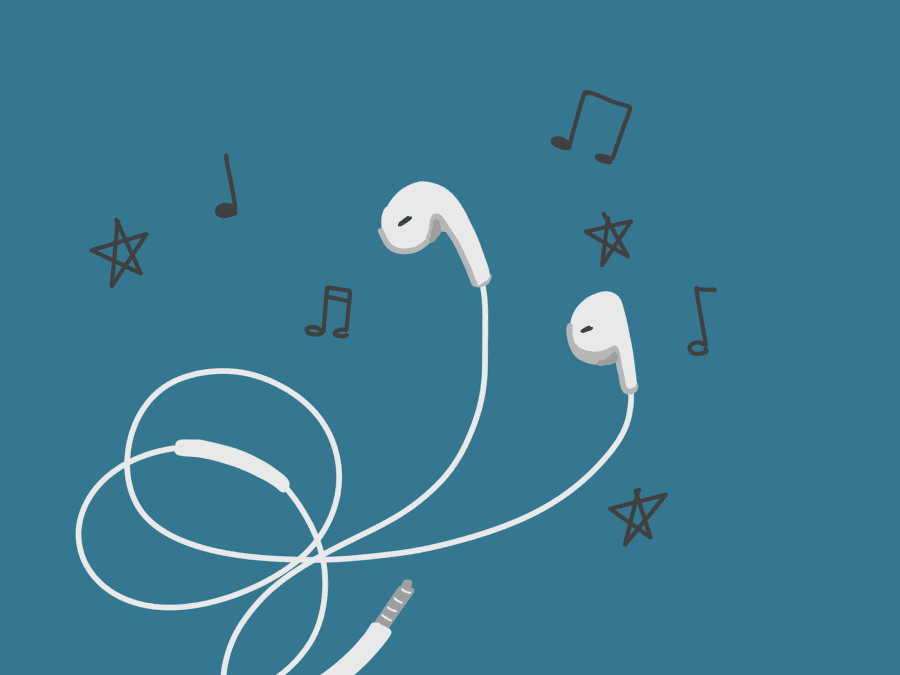Love at first listen: It only takes 5 seconds to like a song, NYU study finds
NYU researchers looked into why people love and hate different music, and found that they typically know whether they like a song within seconds of listening to it.
(Illustration by Susan Behrends Valenzuela)
February 14, 2023
If you’ve ever immediately skipped a song on Spotify, or liked a new song after only a few seconds, you’re not alone, according to a recent NYU study. The study determined that it only takes around five seconds for someone to know whether or not they like a song.
Pascal Wallisch, a professor at the university’s Center for Data Science and the study’s senior author, said that the study was partially funded by the Dean’s Undergraduate Research Fund — a program that allows undergraduate students to apply for research grants from the university — and was run with the help of now alumni Sara Philibotte, Stephen Spivack, Nathaniel Spilka and Ian Passman.
“We found that what makes music special is that it evokes these strong and reliable emotions — it’s all very different between people but very consistent within people,” Wallisch said. “If the music makes you angry, it’s gonna make you angry more, or it’s gonna make you angry in a year — but someone else might hear the music and it’ll make them happy.”
In a survey of 643 NYU undergraduates and New York City residents, participants listened to 260 complete songs from different periods and genres. They also listened to shortened recordings that spanned five to 15 seconds. Participants then rated how much they liked what they listened to, and whether they were able to recognize each song.
Wallisch said the study was done in a controlled environment, in which participants wore headphones and there were no other distractions. He added that he thinks individual experiences affect what music they like to listen to.
In general, listeners’ ratings for the same song were similar when they heard the excerpt and the full song. However, researchers noticed a higher correlation between the ratings when the full song was heard before the excerpt.
Philibotte said the study’s findings could have an impact on how consumers use free features on music platforms.
“This has major implications for platforms like Amazon, iTunes and Pandora that rely on short music excerpts to sell entire songs or albums to consumers,” Philibotte said. “We make emotional and cognitive judgments about music much quicker than we might think we do.”
Wallisch and his team are working to determine why people’s brains react differently to certain songs.
“Music is more like an auditory texture — it kind of sounds similar,” Wallisch said. “You feel the way you feel, the kind of vibes — how a fire makes you feel or how a howling wind makes you feel, but with music.”
Contact Ujji Bathla at [email protected].



























































































































































